Acne Scars
Acne scars can be a source of frustration and self-consciousness for many individuals who have experienced acne breakouts in the past. These scars are a result of the skin’s healing process after severe or persistent acne, leaving behind noticeable marks and indentations. Acne scars can vary in their appearance, ranging from shallow depressions to raised, discolored areas on the skin. They can not only affect one’s physical appearance but also impact self-esteem and confidence
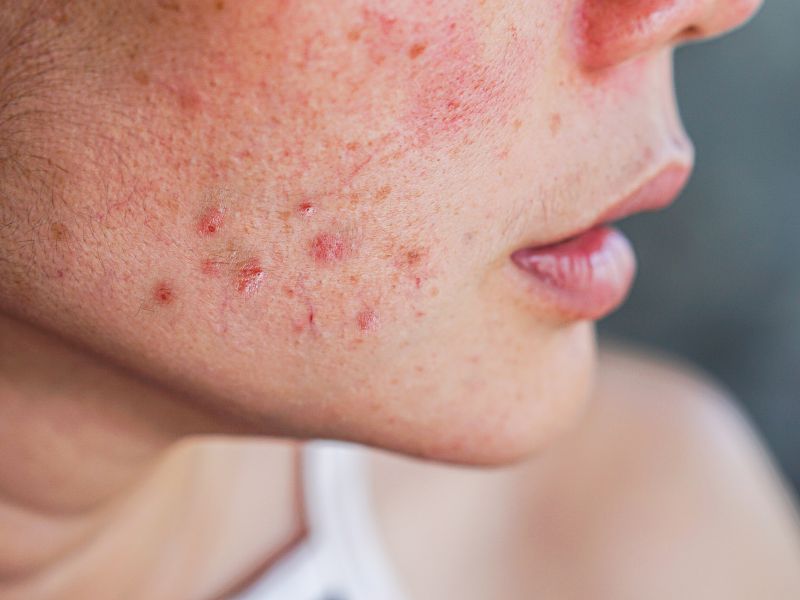
Identify your acne scars
Acne scars can be a frustrating aftermath of dealing with acne. Acne scars can be classified into two main categories: pigmented scars and true scars.
Pigmented scars include:
- post-inflammatory erythema which appear red
- post-inflammatory hyperpigmentation which appear black
- post-inflammatory hypopigmentation which appear white
True scars have two further types:
- atrophic scars which are characterized by:
- icepick scars – these are small, narrow, and v-shaped
- boxcar scars – they resemble chickenpox scars
- rolling scars – they have no distinct edges
- hypertrophic scars which are raised scars on the skin
How to avoid acne scars?
The best way to treat an acne scar is to prevent it in the first place. Here are some tips to help you minimize the chances of acne scar formation:
- Treat acne in its early stages: By addressing acne promptly during its mild to moderate phase, you can reduce the risk of scarring. Severe or nodular cystic acne is more likely to result in scarring.
- Avoid picking at your acne: Picking or extracting comedones using needles can lead to increased inflammation and a higher chance of scarring. Refrain from touching or picking at your acne to prevent further damage to your skin.
- Wear sunscreen: Protecting your skin from the sun is essential to prevent acne scars from darkening or becoming more prominent. Choose a suitable sunscreen for your skin type and apply it daily.
Treating pigmented scars
Pigmented acne scars are discolorations or marks left behind after acne breakouts, including red, black, or white spots on the skin. Consultation with a healthcare professional is necessary before using any of the topical agents mentioned ahead.

Black Scars
Sunscreen is essential to prevent and treat post-inflammatory hyperpigmentation.
- Topical creams containing lactic acid, or glycolic acid can be used. Chemical peeling agents such as hydroquinone, tranexamic acid, or vitamin C can aid in reducing PIH.
- Clinical treatments like carbon facials, Q-Switch laser sessions, chemical dermabrasions, or diamond dermabrasions can provide quicker results.

Red Scars
Most red scars fade naturally over time. To hasten their healing, topical creams or serums containing anti-inflammatory agents, retinoids, azelaic acid or niacinamide can be used.

White Scars
Hypopigmentation can be challenging to treat. Skin color tattooing or melanin transfer can be done to fix hypopigmentation scars.
Treating true scars
True acne scars refer to permanent changes in the skin’s texture caused by acne, such as atrophic scars (depressed or pitted scars) and hypertrophic scars (raised scars).

Atrophic scars:
Topical treatments for atrophic scars have limited efficacy, although topical retinoids may provide some improvement. Highly effective treatment options are:
- Ablative lasers such as erbium yag or fractional CO2 lasers. Ablative lasers remove specific layers of the skin, allowing the formation of new collagen.
- Microneedling simple or with RF such as Scarlet or Sylfirm X. Micro-needling stimulates collagen production, improving the appearance of pits caused by atrophic scars.
- Other treatments include subcisions (breaking the tissue under the skin using a needle), fillers, chemical peels and spot treatments.
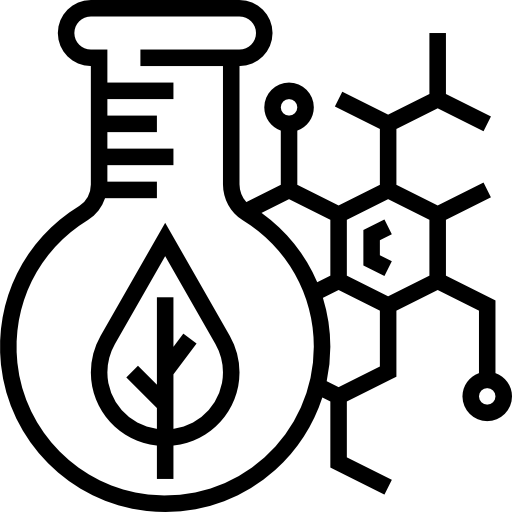
Hypertrophic scars:
Hypertrophic scars can be treated with options such as intralesional injections, silicone gel or sheets, laser therapy, cryotherapy, and surgical excision.
Our Treatments
Learn more about our advanced range of available treatments for acne scars.
view treatment
Dermabrasion
view treatment
CO2 Resurfacing Laser
view treatment
Chemical Peels
view treatment
Q-Switch Laser
view treatment
Scarlet RF Microneedling
view treatment
Sylfirm X RF Microneedling
Our Results
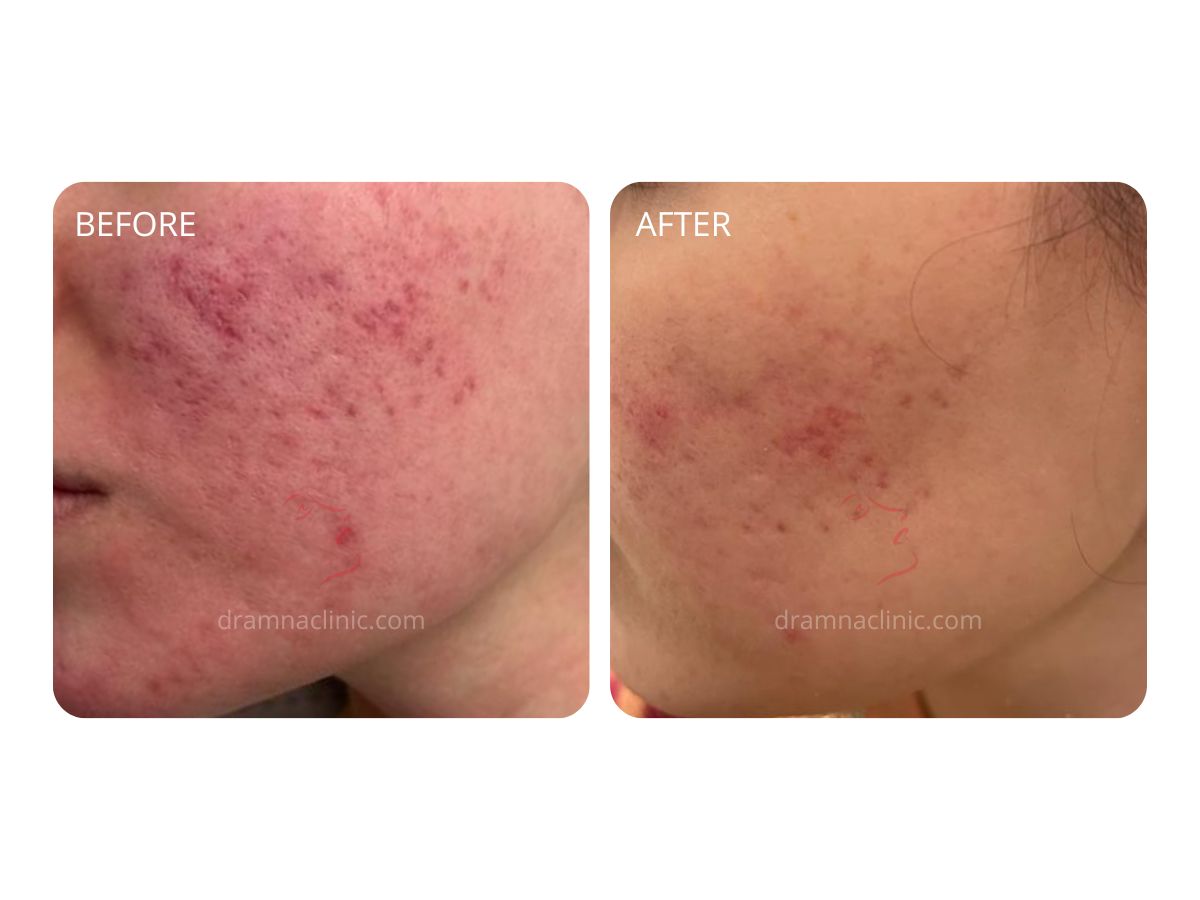
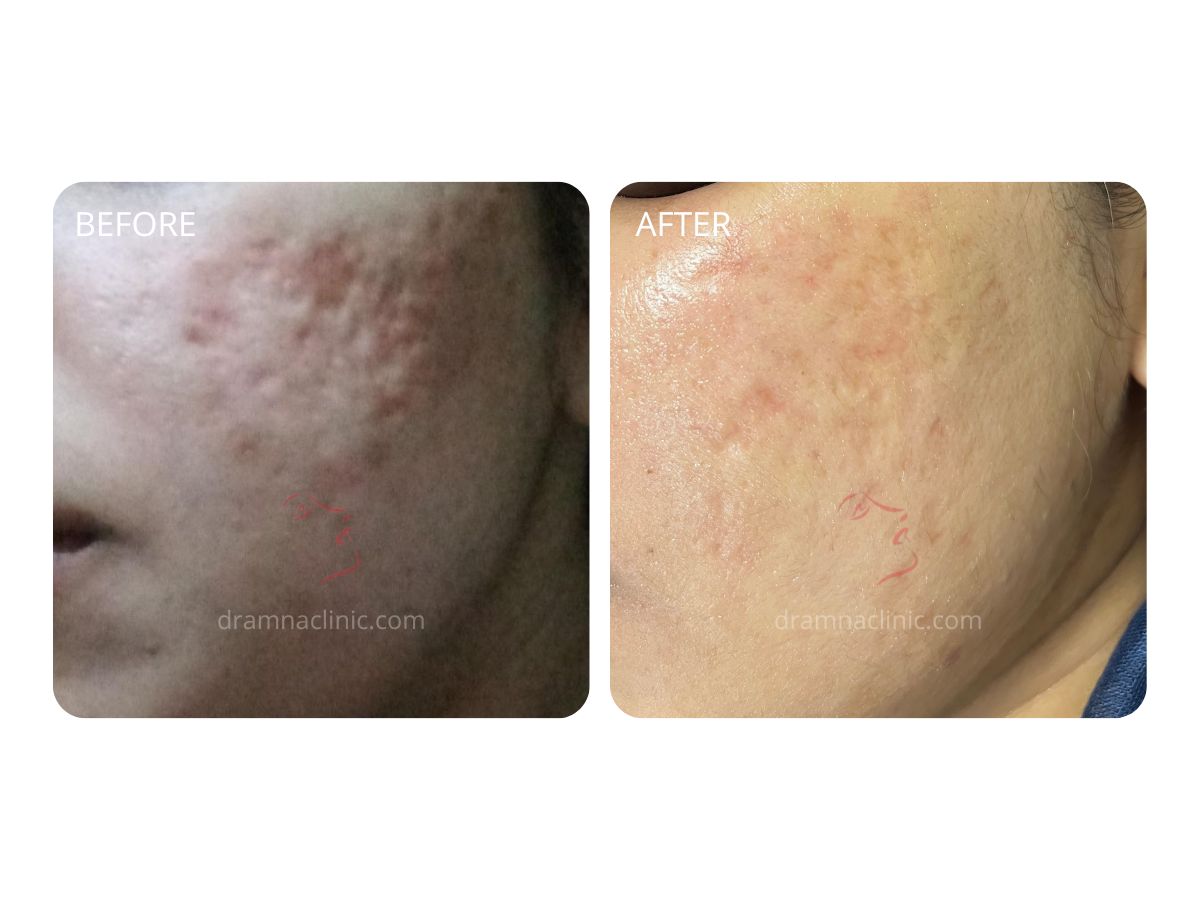
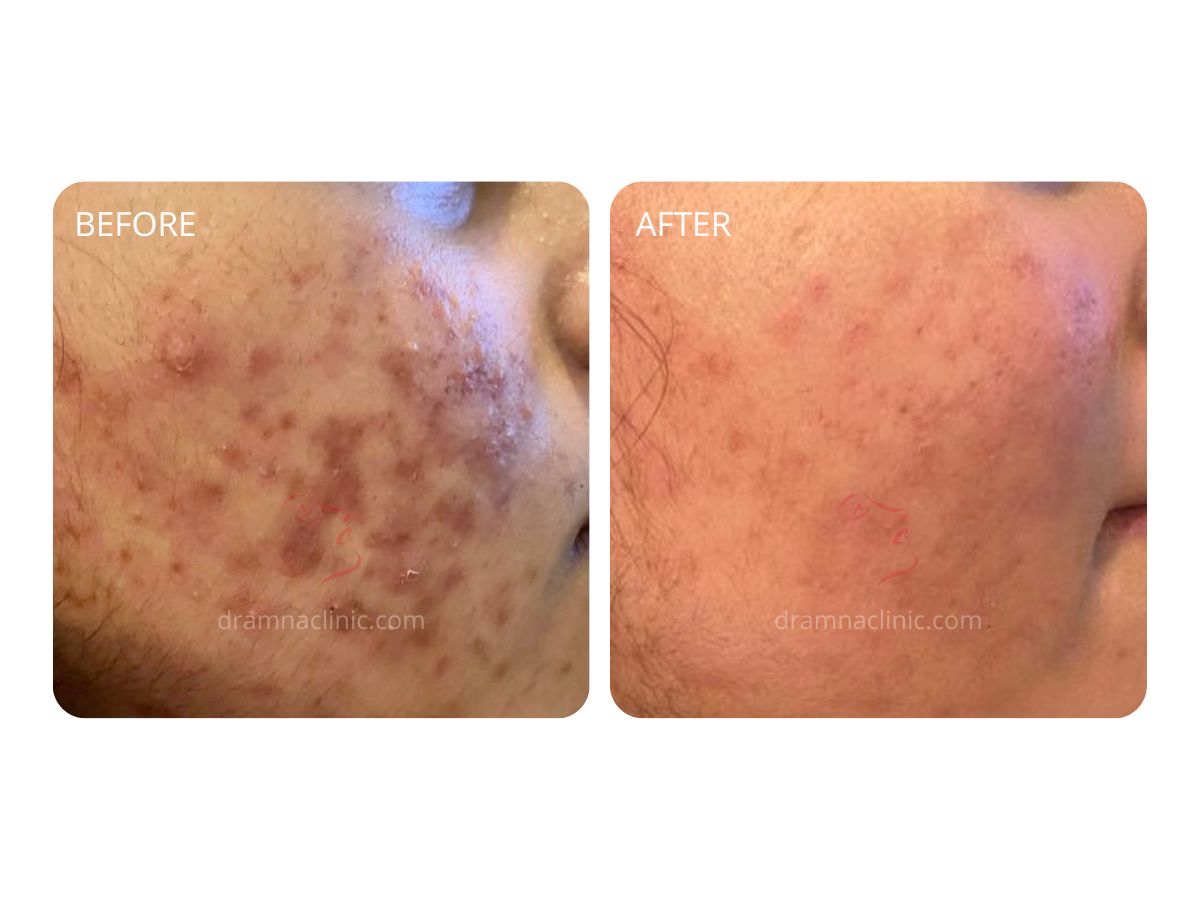




Ready to get started?
Book your consultation today to find the right treatment for your acne scars.